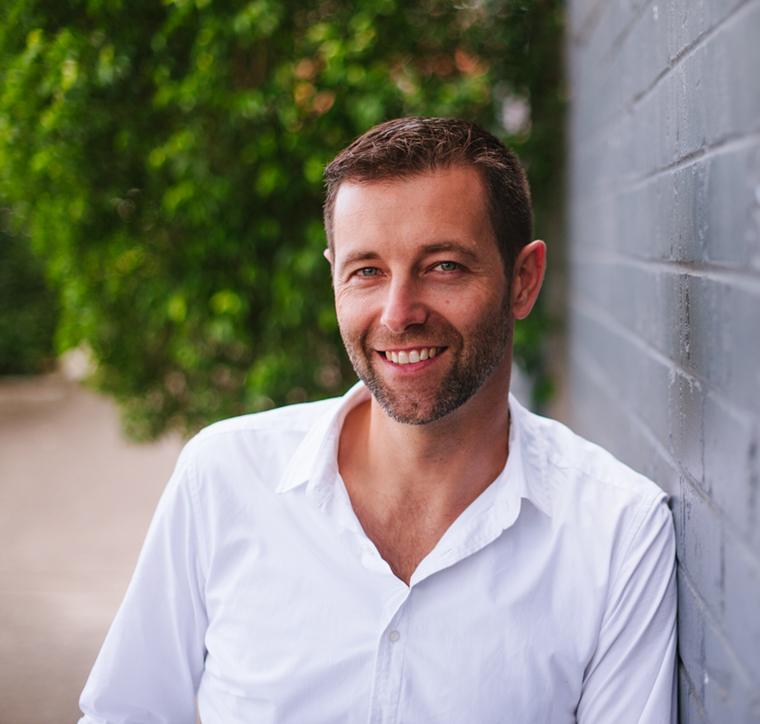Are You Living in the Cause, or the Effect?
Gudjuk was a gifted musician with a hauntingly beautiful voice. He blended the indigenous language and culture of his people with the universal language of music, appearing on the cover of Rolling Stone magazine and performing on a world stage with fellow greats like Elton John and Sting. I didn't personally know Gudjuk, but I do personally know people who did—sharing life together on Elcho Island in north east Arnhem Land. So last week I asked them for a first-hand reflection on the man they knew, as I was particularly interested to hear about his spirituality and faith.
There were so many dimensions to this man—his musical brilliance; his bridging the cultural divide; his deepening spirituality and authentic faith as a Christian. And I wonder of the influences—the little church at Galiwinku, Elcho Island and the role of Christian hymns in his musical development; the remarkable Christian missionaries like those on Elcho Island who were champions of indigenous culture and language, investing their lives into the translation of the bible into indigenous dialects (rather than demanding our First People learn the white man’s tongue).
But what I find most striking is how Gudjuk saw his world and God. My contact who knew him and his mother like family, said to me ‘I think Gudjuk’s faith can be summed up in the words of his own song (History),’ - ‘I was born blind and I don’t know why, God knows why, because He loves me so'. Blind from birth, Gudjuk navigated life differently to the majority of us, and while his blindness may be classified as a disability, perhaps he saw the world in ways those with sight never can.
Gudjuk reminds me of a story in the bible in John Chapter 9 where Jesus also meets a man blind from birth. His disciples insensitively ask ‘Who sinned, this man or his parents that he was born blind?’ Their question reveals a world view still common to this day—that bad things happen to people because they are being punished (by God). Jesus quickly corrected them saying ‘neither this man nor his parents sinned, but this has happened so that the works of God might be displayed in his life.’
What does Jesus’ answer mean? Well it doesn't mean God made him blind to get the glory one day—that is an equally ugly interpretation. And if you follow that logic, then every natural disaster and every cancer cell might be somehow God-inspired, and if that is true, God may be powerful but he is not good. No, Jesus is saying that the premise of their question is wrong. As much as we can't help but form our questions of suffering around who’s to blame (who sinned) or the cause, they are questions that are largely without answer in this life. Just read the story of Job and you’ll get that message.
The question Jesus is answering is not about the ‘cause’, but the ‘effect’. If we can't know the cause of our suffering, what at least will be the effect of our suffering? What becomes of us in our diminishment, our loss, our pain? Do we become defined by what is wrong? Do we live as a victim, or sink into despair? Do our questions lead us to unbelief and bitterness?
Or, is there a way we can rise above what we don't have and use whatever we do have for good? Is there a chance that our intrinsic worth as people can be magnified even in our weakness and loss? Is it possible to find a life, even when there are parts of it that we’ve lost?
Gudjuk was blind, he didn't know why and neither do I. But his heart told him that the best answer was to find peace in that reality and remind himself that God loves him. And his response was to utilise what he could do, develop his musical giftedness, and gift it to the world.
What I’m about to say may make little sense apart from personal experience. But, whatever situation you find yourself in at the moment, in whatever questions that have gone unanswered, God knows you and he loves you—he even likes you!
Right now, in all the mess or grief of life there is one who not only showed that love on a cross and an empty tomb, but who goes on personally revealing the truth that God is for you. To know and experience this reality in a personal way is a profoundly liberating thing.
Here is a link to the clip of Gudjuk’s song ‘History’
There were so many dimensions to this man—his musical brilliance; his bridging the cultural divide; his deepening spirituality and authentic faith as a Christian. And I wonder of the influences—the little church at Galiwinku, Elcho Island and the role of Christian hymns in his musical development; the remarkable Christian missionaries like those on Elcho Island who were champions of indigenous culture and language, investing their lives into the translation of the bible into indigenous dialects (rather than demanding our First People learn the white man’s tongue).
But what I find most striking is how Gudjuk saw his world and God. My contact who knew him and his mother like family, said to me ‘I think Gudjuk’s faith can be summed up in the words of his own song (History),’ - ‘I was born blind and I don’t know why, God knows why, because He loves me so'. Blind from birth, Gudjuk navigated life differently to the majority of us, and while his blindness may be classified as a disability, perhaps he saw the world in ways those with sight never can.
Gudjuk reminds me of a story in the bible in John Chapter 9 where Jesus also meets a man blind from birth. His disciples insensitively ask ‘Who sinned, this man or his parents that he was born blind?’ Their question reveals a world view still common to this day—that bad things happen to people because they are being punished (by God). Jesus quickly corrected them saying ‘neither this man nor his parents sinned, but this has happened so that the works of God might be displayed in his life.’
What does Jesus’ answer mean? Well it doesn't mean God made him blind to get the glory one day—that is an equally ugly interpretation. And if you follow that logic, then every natural disaster and every cancer cell might be somehow God-inspired, and if that is true, God may be powerful but he is not good. No, Jesus is saying that the premise of their question is wrong. As much as we can't help but form our questions of suffering around who’s to blame (who sinned) or the cause, they are questions that are largely without answer in this life. Just read the story of Job and you’ll get that message.
The question Jesus is answering is not about the ‘cause’, but the ‘effect’. If we can't know the cause of our suffering, what at least will be the effect of our suffering? What becomes of us in our diminishment, our loss, our pain? Do we become defined by what is wrong? Do we live as a victim, or sink into despair? Do our questions lead us to unbelief and bitterness?
Or, is there a way we can rise above what we don't have and use whatever we do have for good? Is there a chance that our intrinsic worth as people can be magnified even in our weakness and loss? Is it possible to find a life, even when there are parts of it that we’ve lost?
Gudjuk was blind, he didn't know why and neither do I. But his heart told him that the best answer was to find peace in that reality and remind himself that God loves him. And his response was to utilise what he could do, develop his musical giftedness, and gift it to the world.
What I’m about to say may make little sense apart from personal experience. But, whatever situation you find yourself in at the moment, in whatever questions that have gone unanswered, God knows you and he loves you—he even likes you!
Right now, in all the mess or grief of life there is one who not only showed that love on a cross and an empty tomb, but who goes on personally revealing the truth that God is for you. To know and experience this reality in a personal way is a profoundly liberating thing.
Here is a link to the clip of Gudjuk’s song ‘History’
Post script. Perhaps, like I, you've travelled around the world marvelling in the history of other cultures—the Romans; the Egyptians; the Chinese; the Thai. Did you know that the oldest continuous living culture on the earth today belongs here with our Indigenous Australians who carry a rich oral history in song, dance and custom that is older than the pyramids? Do you know anything about that history? I know I really take for granted the cultural treasure around us and perhaps it is time to honour and champion the ancient heritage we’ve inherited from the First Australians. I for one support a substantive and meaningful constitutional recognition of our Indigenous peoples. What do you think?











